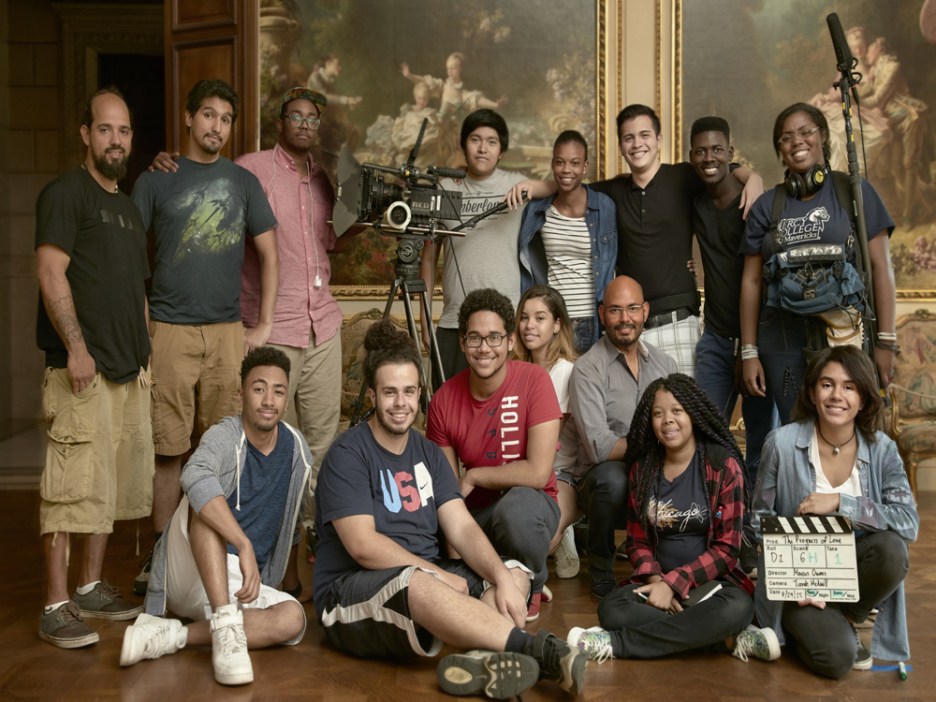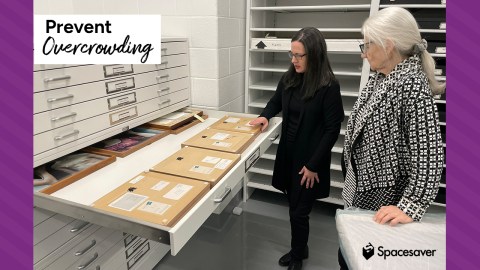
“Every child is an artist. The problem is to remain an artist” — Pablo Picasso
According to a study by the College Board in 2012, required arts instruction in K-12 schools often comes to an end in middle school – the exact moment when students start making decisions as to whether they wish to continue with arts-based learning in the future. The research on social, intellectual and emotional development related to secondary and post-secondary arts learning is unified in expressing the importance of creating authentic arts learning experiences for students.
And let’s be honest: our society and institutions don’t trust adolescents of a certain demographic. One of my students once relayed an embarrassing story about an English teacher who attempted to draw a correlation between Harlem Renaissance icon Langston Hughes and rapper 50 Cent. The student, offended, saw it as a blatantly condescending attempt to make something more relatable to a young person of color. From that moment on, this student was entirely cognizant of the fact that this individual teacher didn’t have high expectations, or a high opinion, of her or her peers.
There is also a belief that students cannot succeed at certain artistic endeavors, nor will they pursue the arts long-term. Most youth media organizations throughout the country are actually programs built around community and social work. Their curriculum centers on co-opting “media” as a hook to recruit students and engage them. However, do they actually expect students to go out and become the next Liz Garbus or Stanley Nelson? They function more like after-school clubs rather than providing an actual arts education.
Instead, Ghetto Film School (GFS) has positioned itself to seize on opportunities on the horizon in the sphere of collaborative, cross-disciplinary arts education. Based in the South Bronx NYC and MacArthur Park LA, GFS is an award-winning non-profit that was founded in 2000 to educate, develop and celebrate the next generation of great American storytellers. 85 percent of our New York City students come from the Bronx, Washington Heights or Harlem, and our Los Angeles students come from 45 neighborhoods across LA County. GFS uses a pedagogical foundation based in hands-on instruction in cinematic storytelling. 1,500 young artists in our free-of-charge pre-professional and early career programming annually receive direct access to an immense network of leaders and professionals in media, the creative industries and the arts.
Every winter, organized in collaboration with The Frick Collection, twenty-five high school juniors and seniors in GFS’ narrative filmmaking program meet with the Frick’s chief curator Xavier Salomon over the course of ten weeks. The focus of the classes is to integrate fine arts appreciation and understanding into a filmmaking curriculum. Following private master classes led by Mr. Salomon at The Frick (on Monday afternoons when the museum is closed), each student writes a short film script inspired by the museum and/or a specific work of art. The films are shot on location at The Frick during the summer. In the past two years of the partnership, the students have produced The Progress of Love, loosely based on an 18th century painting series by Jean Honoré Fragonard, and Little Things (premiering in early 2017), which features the Frick’s Boucher Room and 18th century sculptor Jean-Antoine Houdon’s “Diana the Huntress.” Both these films remain the only films ever produced in the museum.More teachers, school districts and outside cultural institutions should follow the lead of New York City’s Frick Collection by creating opportunities to deliver authentic creative education outside of the existing parameters of traditional instruction, rather than ‘one-off’ workshops or seminars where the instruction is sanitized or presented in a condescending method. Equanimity must be established by eliminating labels that restrict the creative education process (e.g. kids = at-risk victims). The earlier young people are engaged with an authentic experience in the arts, the more likely they will be to pursue that interest throughout their adult lives.
While every school may not have the infrastructure or capacity to partner with cultural institutions like the Frick Collection to deliver authentic instruction, it is imperative that educators on both sides work for creative solutions to extend and solidify these authentic partnerships between cultural arts institutions and local schools. In an educational environment that is becoming increasingly reliant on collaboration, it is important that cultural art institutions and schools work together for the benefit of creatively educating today’s youth. Distinct partnerships between public schools, non-profits and institutions must generate these kinds of cultural opportunities and produce creative spaces for the next generation to lead.
Derrick Cameron is the Artistic Director of Ghetto Film School. He has been with GFS for 9 years and oversees pre-professional programs, pedagogy and curriculum development.
See more from Ghetto Film School on Instagram, Twitter and Facebook.







